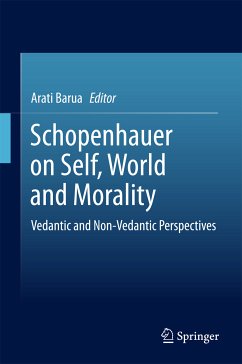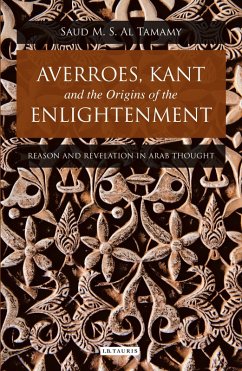
Hegel in the Arab World (eBook, PDF)
Modernity, Colonialism, and Freedom
Versandkostenfrei!
Sofort per Download lieferbar
44,95 €
inkl. MwSt.
Weitere Ausgaben:

PAYBACK Punkte
22 °P sammeln!
Hegel's philosophy has been of fundamental importance for the development of contemporary thought and for the very representation of Western modernity. This book investigates Hegel's influence in the Arab world, generally considered "other" and far from the West, focusing specifically on Syria, Lebanon, and Egypt. Lorella Ventura discusses the reception of Hegelian thought and outlines a conceptual grid to help interpret the historical, cultural, and political events that have affected the Arab region in the last two centuries, and shed light on some aspects of its complex relationship with th...
Hegel's philosophy has been of fundamental importance for the development of contemporary thought and for the very representation of Western modernity. This book investigates Hegel's influence in the Arab world, generally considered "other" and far from the West, focusing specifically on Syria, Lebanon, and Egypt. Lorella Ventura discusses the reception of Hegelian thought and outlines a conceptual grid to help interpret the historical, cultural, and political events that have affected the Arab region in the last two centuries, and shed light on some aspects of its complex relationship with the western world.
Dieser Download kann aus rechtlichen Gründen nur mit Rechnungsadresse in A, B, BG, CY, CZ, D, DK, EW, E, FIN, F, GR, HR, H, IRL, I, LT, L, LR, M, NL, PL, P, R, S, SLO, SK ausgeliefert werden.












